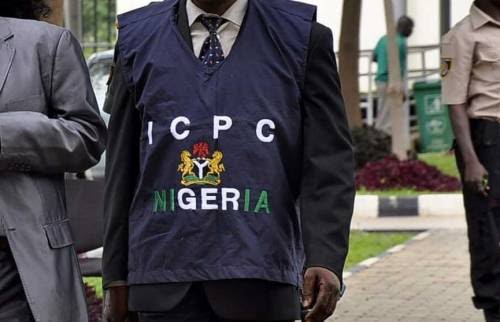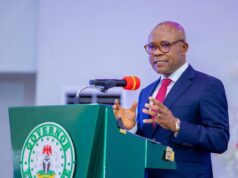The Chairman of the Independent Corrupt Practices and Other Related Offences Commission (ICPC), Adamu Aliyu, has revealed that the agency recovered over ₦13 billion in misappropriated public funds in September 2024.
Aliyu, speaking during the launch of the ICPC’s 2024-2028 strategic action plan in Abuja, emphasized the commission’s commitment to its anti-corruption mandate.
 Advertorial
Advertorial
While Aliyu did not disclose the specific individuals or sectors involved in the recovery, he highlighted the ongoing efforts of the ICPC in addressing corruption across various areas of public service.
“In September alone, we successfully recovered over ₦13 billion in diverted public funds. This is part of our continuous effort to fulfill our mandate and strengthen accountability in governance,” he stated.
 Advertorial
Advertorial
Aliyu also announced that the ICPC is undergoing a digital transformation to enhance its operational efficiency.
The digitalisation process will improve investigations, case management, and internal procedures, allowing the commission to better combat corruption in the digital age.
“Our ICT reforms will position the ICPC as a leader in leveraging technology, helping us stay ahead of criminal activities,” he explained.
 Advertorial
Advertorial
Additionally, the ICPC is developing a specialised curriculum to strengthen the skills of its personnel, enabling them to tackle complex corruption cases more effectively.
The commission is also decentralising its anti-corruption efforts by working closely with state governments and empowering State Attorneys General to take a more active role in preventing corruption at the local level.
Attorney General of the Federation and Minister of Justice, Lateef Fagbemi, affirmed the government’s commitment to fighting corruption, describing it as a top priority of President Bola Tinubu’s administration.

He underscored the importance of the ICPC’s work in promoting integrity and accountability across all sectors.
“Corruption is a cancer that weakens institutions and impedes national progress,” Fagbemi said.
“The ICPC’s role is crucial in identifying and prosecuting corrupt practices, as well as fostering a culture of transparency.”
Justice Monica Dongban-Mensem, President of the Court of Appeal, also pledged support for the ICPC’s strategic plan, emphasizing the need for collaboration to tackle corruption effectively.

She reiterated that corruption extends beyond financial misconduct and includes the failure to fulfill responsibilities.
“We are committed to supporting the ICPC’s efforts in implementing this action plan,” Dongban-Mensem added.

















